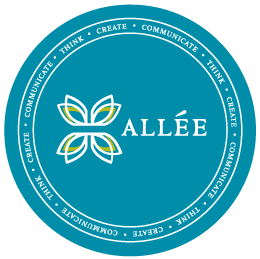You’ve likely read many trends and marketing predictions for 2019 and you may even have a great short (or long) list of ideas for revamping your marketing strategies in the new year. There are numerous pieces of advice out there regarding thoughts on AI, the future of ephemeral messaging and setting budgets for the new year. And whether you are looking to increase brand awareness or increase revenue, there are a few additional concepts that I’d encourage you to remember as you finalize your 2019 marketing plan. Think of them less as trends and more as marketing must-knows for 2019. Here is my take on what you need to know as you dive into marketing your brand this year.
1. Quality content always wins.
Brands that invest in quality writers, content creators and editors will shine past the competition. Content is what sells your brand. In fact, consumers engage with 11.4 pieces of content prior to even making a purchase. Between 70 and 90% of the buyer’s journey is complete prior to engaging a vendor (you can find this stat all over the internet, but one good resource is Salesforce’s “Understanding the buyer’s journey” article). Making sure that your content is on point is key because you never know when and where potential customers will see and digest your content; put your best foot forward through your content.
What’s more, Nielsen reports that consumers are five times more dependent on content than they were 5 years ago—consumers are looking for a way to get to know you. But, because they are looking, it means they are also bombarded with all kinds of content. Good, bad or otherwise. Make yours stand out by taking time to create quality pieces of information that solve a need, pain point or problem.
2. All marketing is content marketing.
It’s not a buzzword anymore. Brands that embrace the fact that content marketing is just straight up marketing will have an easier time connecting with and engaging audiences. Marketing = content. In fact, we are more dependent on content (5 times more, according to Forbes) than we ever have been. And it’s not just the written word. Video. Social media. Podcasts. White papers. Websites. Public Relations. Advertising. Combine it all. Think about using it all. Keep communicating within your company so that all employees and departments are on the same page—working cohesively between sales, marketing, advertising and operations. If you do, you’ll see that collaboration in all things marketing will move your brand to the next level in the new year.
As Allison Wert, content marketing manager of Frontline Education told Content Marketing Institute in her predictions, “You can’t have good demand generation, or good PR, or good product marketing without a commitment to meeting your audience’s needs with valuable and interesting content – the essence of content marketing.”
3. Relationships are key.
Do not discount personalized messaging and consistent community management. As we continue to be introduced to more streamlined ways of doing things, it’s important to truly understand how those automated tools can impact your brand.
There’s talk in the industry about AI replacing a lot of us—editors, writers, designers, content creators—with AI algorithms. In my humble opinion, I think this is a bold prediction that doesn’t hold much weight in regard to what clients (and brands) are looking for. There is something to be said about organic content research, creation and relationship building. So, while you may have the ability to utilize technology to make your marketing life better, do not discount the value of building relationships the good old-fashioned way. Consumers are smart. We can smell automated messaging, responses and generic content a mile away.
4. Don’t get caught up in the bright and shiny.
There was a discussion on Twitter about a week ago about ephemeral messaging (think Snapchat) and what opinions were on how brands will utilize it in 2019 and beyond. And while there are some brands doing great things with the tactic, my take was that with SMS marketing already being hard for brands to use effectively (no one wants to give out their mobile numbers), ephemeral messaging, while it may be the new bright-and-shiny tool, is still an uphill battle and remains to be seen if it works to secure action. I’m not sold on it.
And this is the approach I take with our clients when they ask about the “next big thing.” Vet the ideas. Do the research. Just because it’s working for someone else doesn’t mean it will work for you or necessarily be the right strategy.
5. Shift your focus to Millennials and Gen Z.
It’s probably the fundraiser in me, but I still feel that brands have not done due diligence in engaging younger generations appropriately. The problem with this is that if we don’t start now, we will not exist in the next 5 years.
Do not discount Millennials and Generation Z. They are our changemakers. Our consumers. Our future managers and decision-makers.
Think about it: Millennials (born 1981-1996) are the largest generation in the workforce in the United States and soon, they will be the largest living adult generation. What does this mean for brands? It’s two-fold:
- From a recruiting standpoint, this generation is the generation who will run your brand. They are moving up in their careers. They are hitting management positions. They are the ones you need to cultivate in order to ensure that your company remains for years to come.
- As consumers, they have the most disposable income—all of them are of working age but of all the generations, they are the least likely to have mortgages. However, if you don’t give them a reason to engage or to trust your brand, you won’t see a dime from them.
Millennials can get a bad reputation in that everyone still thinks they are “so young.” However, depending on the years you are using to distinguish this generation, your oldest Millennials are in their late 30s—think about how old you were when you hit mid-management and higher or were looking to make your first large purchase(s). When we think of it that way, we have more in common with this generation than we may think.
And right around the corner is Gen Z. This generation, born between 1997 and 2012, has one foot in digital and the other rooted in traditional values. They expect you to engage them on a personal level, yet they seek content opportunities endorsed by idols and influencing peers. Like I always call my oldest (who is 14), they are very much old souls in young bodies. Do not discount them, either. It takes all consumer types to grow brands—engage with them at all levels.
6. Above all, be authentic.
This is not new advice and it is something that I am passionate about in all aspects of business, marketing and life. Without authenticity, without being your real self (yes, even as a brand) you will lose your audience. You can create all the amazing messaging in the world and use the latest, greatest channels to distribute it, but if you do not listen authentically, if you do not respond authentically, if you are not honest about who your brand is (and is not) your audience will move on.
Relationships will always be at the forefront of marketing no matter what year it is. While it doesn’t mean you can’t utilize new methods and channels as we move along, keep in mind what your audience wants—to be heard, to be helped and to be communicated with respectfully and consistently.





